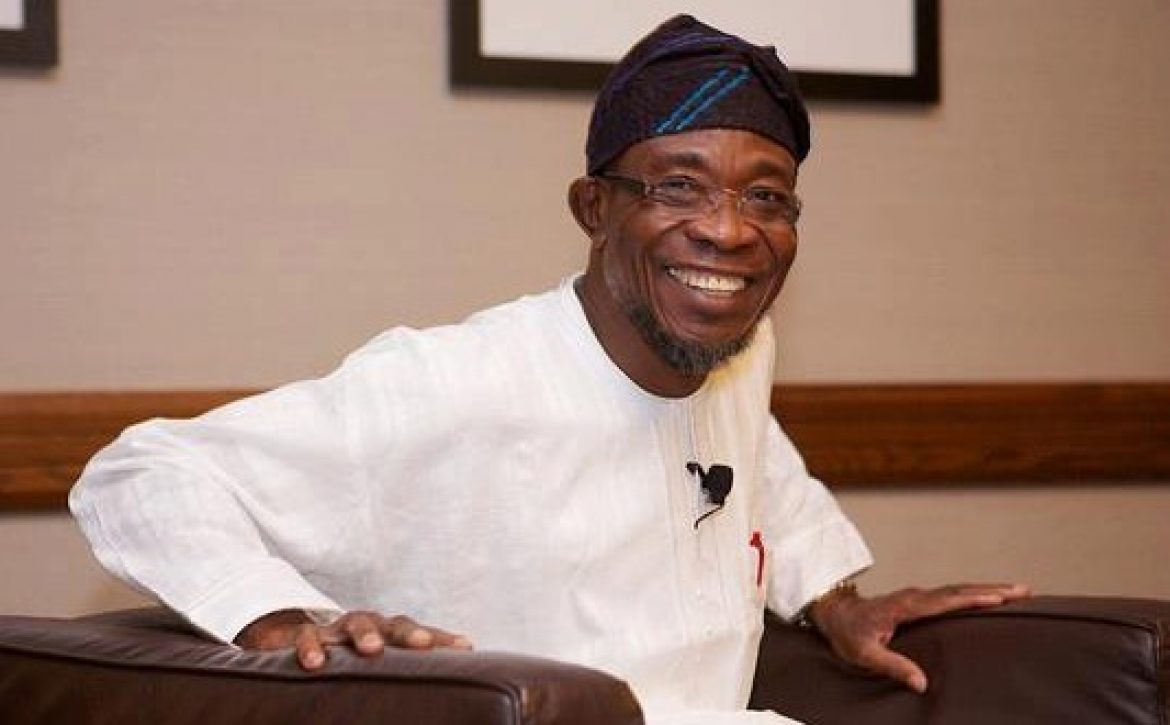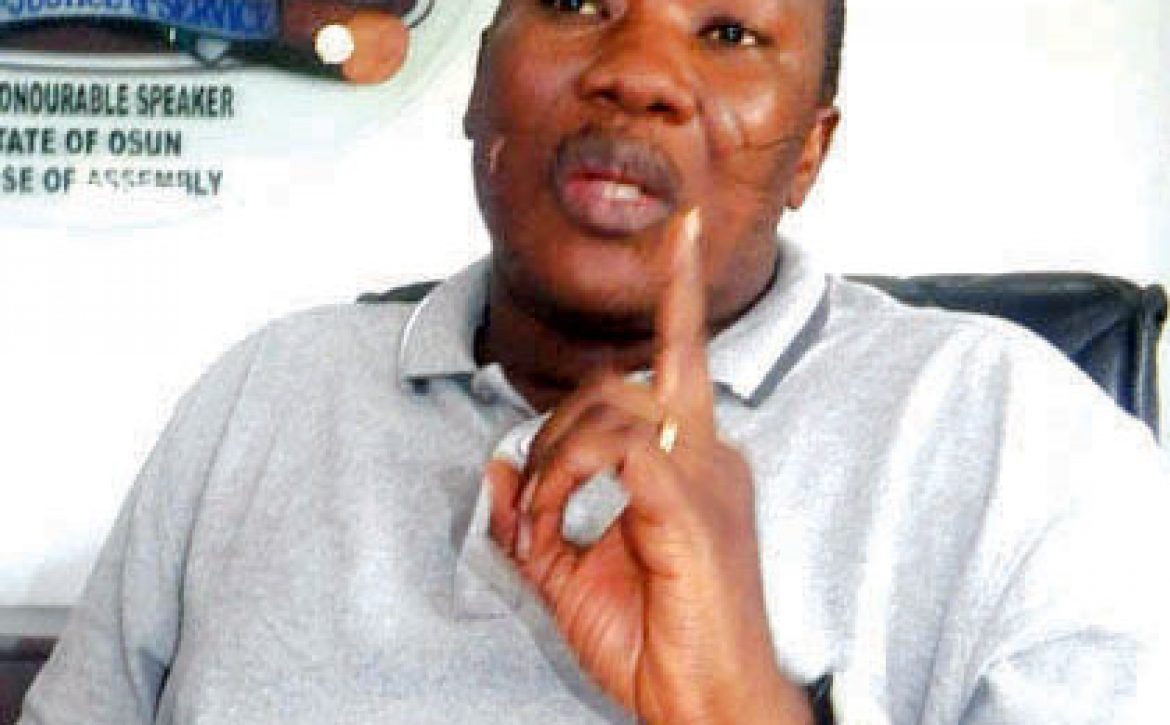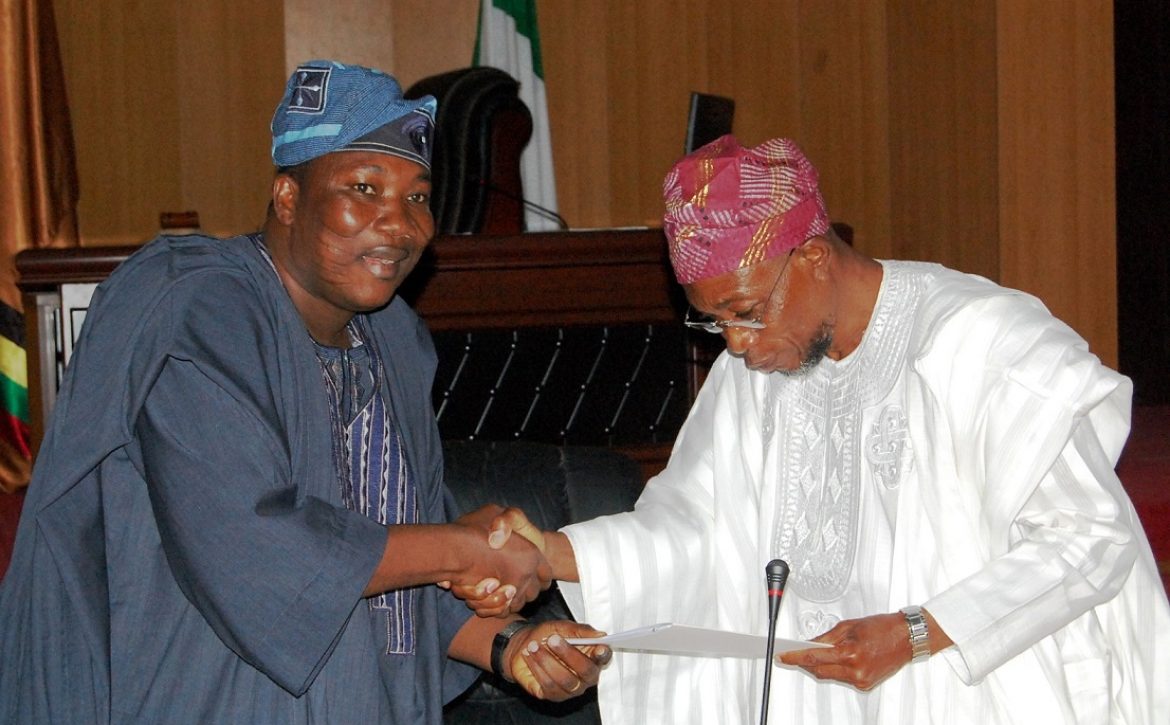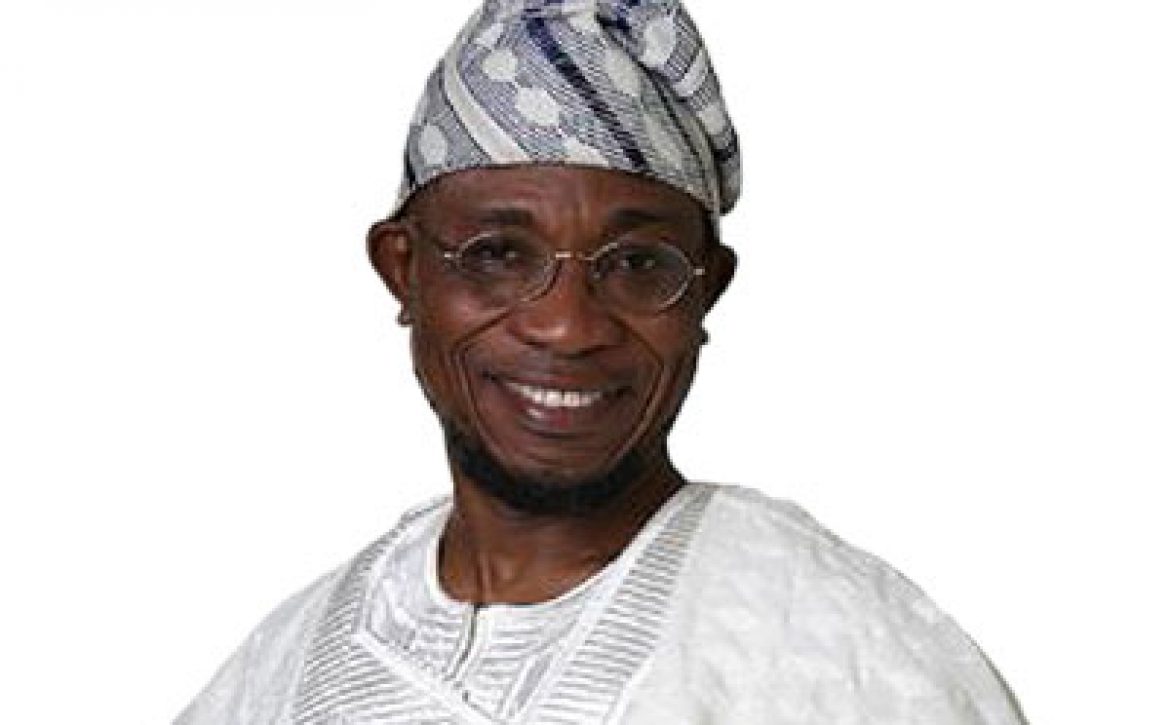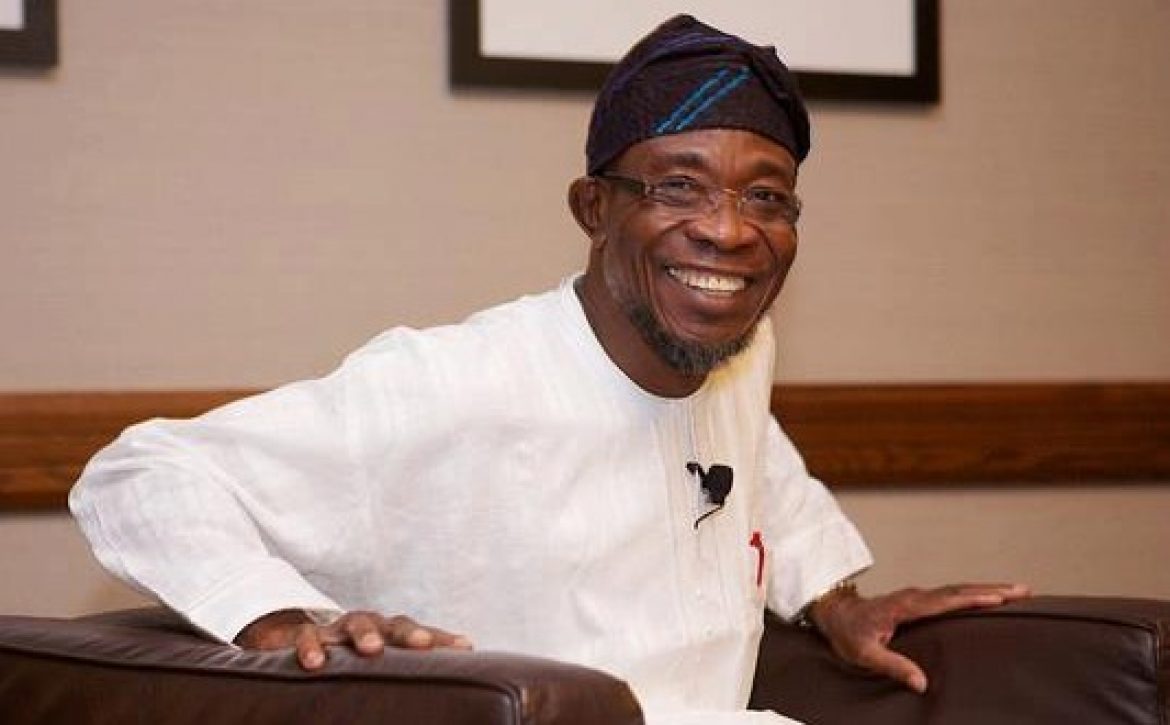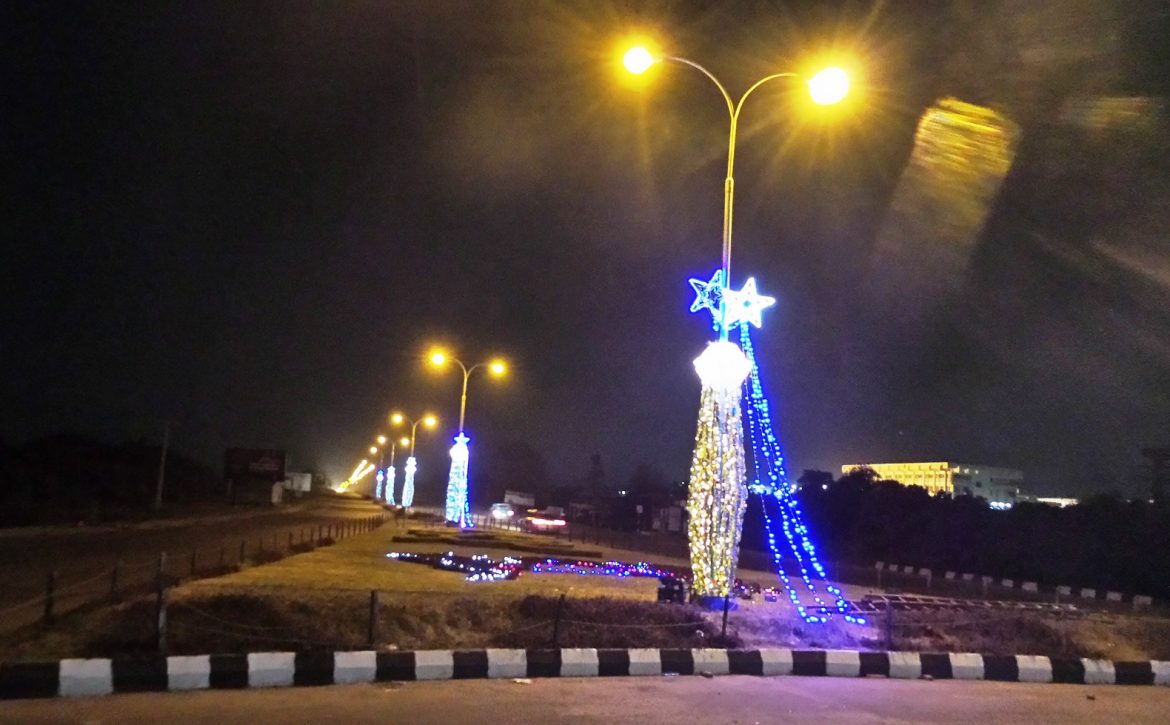The 1976 Local Government Reform was a systematic and deliberate reorganisation of the local government administration in Nigeria. The military needed a link between their centrally controlled political system and the people at the grassroots to mobilize the people to get their support with the aim of legitimising their illegitimate regime, after they have edged out a democratically elected government. Ever since, the local government has continued to remain a vibrant and quintessence form of government, both the 1979 and 1999 Constitutions guarantee democratically elected local government councils.
In 1999, when the democratically elected government was ushered in, Senator Bola Ahmed Tinubu, former governor of Lagos State, was uncomfortable with the 20 local government areas he met in Lagos. Tinubu could not comprehend how Lagos State, with a population of 15 million at that time would be given only 20 local governments when Kano was having 44 local gvernment, despite the fact that Jigawa State had been carved out of it, which almost doubled local government areas in Lagos State. For instance, Alimosho Local Government Area alone, both in population and land mass was bigger than Bayelsa state with eight local governments.
The military leaders were masters of deception, they knew the importance of Local Government, and they utilized the creation to benefit their states of origin; knowing that the more the numbers of local government, the more the Federal Allocation would be given to their local government. He immediately set in motion necessary machineries to increase the numbers of the local government areas. At the end of the exercise, the number of local government areas remained 20, but 37 new Local Government Developmental Areas (LCDA) were created.
Lagosians welcomed the development, praising Tinubu for such vision. But the People Democratic Party (PDP) condemned the newly created developmental areas. The PDP led-Federal Government seized the monthly Federal allocation to local government areas. And the action was challenged in the court in the celebrated case of AG Lagos Versus AG Federation. At the end of the case, the Supreme Court held that the House of Assembly is empowered to create local government areas in their states but must forward their newly created local government to the National Assembly for the purpose of adding them to the existing local governments and for the purpose of enlistment and allocation of fund to the local governments. That although, the newly created local governments in Lagos State were in order but, “it is Inchoate,” until it is enlisted in the constitution by the National Assembly. It held further that the Federal Government has no power under the constitution to withhold allocation to any part of the states in Nigeria.
Why Osun need more local governments?
Osun is located in the Western part of Nigeria. It covers an area of approximately 14,875 square kilometers.
According to the National Population and Housing Census exercise conducted in 2006, Osun has a population of 3,423,535. As an agrarian area, there is the likelihood that its annual population growth will be around 5 per cent.
In the next few days, the governor of the state of Osun, Ogbeni Rauf Adesoji Aregbesola, may give the state a Christmas gift of new Local Government Developmental Areas (LCDA), in accordance with the power vested in him, and to an extent, the State House of Assembly. It is important to solicit for the cooperation of the people of the state on the forthcoming exercise, as the new LCDA may not satisfy all the interest groups in the state. But it is incontrovertible that a local government brings progress and development to its people . However, the viability of local government is vital to its running and sustainability.
Apart from the constitutional functions of a local government, grassroots politics will be encouraged as government will be brought closer to the people. The much desired development in the state will further be pronounced and experience if will whole heartedly welcome the newly created local governments.
It is important that the people of the state cooperate with the administration of Ogbeni Aregbesola and support the LCDAs and to ensure that nothing is to disturb the existing peace reigning in the state, irrespective of political or religious persuasion. We are one and must see the need to continue with the developmental agenda in all areas of our state.
THE NATION
Category: News
 The Local Government Service Commission in the State of Osun has reaffirmed its commitment to revamp its operational efficiencies in order to achieve the vision and mission of its mandate.
The Local Government Service Commission in the State of Osun has reaffirmed its commitment to revamp its operational efficiencies in order to achieve the vision and mission of its mandate.
The chairman ,Local Government Service Commission , Mr.Peter Babalola stated this today while declaring open a 3-day Retreat on Enhancing the Operational Efficiency of the Commission.
Mr Babalola said the aim of the workshop is to ensure that participants are more efficient in the operation and administration of personnel at the grassroots level.
He emphasised this because the trend in the world today has changed from top-bottom approach to bottom-top approach in the quest for socio-ecomonic development hence, the need for proper planning.
The chairman noted that the retreat forms part of strategic planning to prepare the Board and Management staff of the Commission to face and surmount the task before it, as well as to re-organise the various units and sections in the agency for better performance.
Speaking earlier in his address of welcome ,the managing consultant frontline Consult, Mr Remi Makinde said the retreat will at the end of the day highlight the need for collaborative efforts among political and career officers involved in personnel management in the local government service in order to achieve the goals of governance which is improvement in the socio economic welfare of the people at the grassroots.
He explained that it will also expose the participants to the fundamental service rules that govern the basic functions of the commission to promote better performance.
OSUN DEFENDER
 The Speaker of the State of Osun House of Assembly, Honourable Najeem Salam has described the proposed creation of additional twenty-seven local government areas in the state by the state governor, Ogbeni Rauf Aregbesola as a way to bring about unprecedented development at equal pace to the people at the grassroots level.
The Speaker of the State of Osun House of Assembly, Honourable Najeem Salam has described the proposed creation of additional twenty-seven local government areas in the state by the state governor, Ogbeni Rauf Aregbesola as a way to bring about unprecedented development at equal pace to the people at the grassroots level.
Honourable Salam stated this while receiving the 2013 Local Government Creation and Administration Bill from Governor Rauf Aregbesola on the floor of the House.
The Speaker ,who said that the new councils if created ,will not constitute a burden on the existing thirty local government areas in the state noted that they will serve as platform of effective and all inclusive governance at the grassroots.
Expressing the satisfaction of the state parliament with the way the state is witnessing massive development in all sectors under the leadership of Governor Aregbesola, Honourable Salam promised that the House would look into the bill and facilitate its quick passage into law.
Earlier, presenting the Local Government Creation and Administration Bill, 2013 before the House at the chamber of the House, Governor Aregbesola said the bill proposing creation of new local government areas is in line with the aspiration of the people and to bring government closer to the people.
Governor Aregbesola added that the bill is a means to reduce cost of governance and improve revenue generation to the state.
Meanwhile the Assembly had earlier passed the State of Osun Mass Education Agency Establishment Bill, 2013 into law through a motion moved by the Deputy Leader of the House, Honourable Afolabi Atolagbe and seconded by Honourable Folorunsho Bamisayemi.
OSUN DEFENDER

Osun State Government has introduced parliamentary system of government across the local government councils in the state.
The Commissioner for Information, Mr. Sunday Akere, who said this in an interview with our correspondent on Tuesday, explained that local government chairmen would now be elected from among councillors elected at council poll.
The commissioner, while explaining reason for seeking to create additional 27 new council areas, stated that this would bring development closer to the people.
He said, “The governor presented the bill for the creation of new 27 local government council areas in order to ensure that development gets to the nooks and crannies of the state.
“The new councils would operate a parliamentary system of government in order to avoid financial constraints. This means that nobody would contest to be elected as chairman. You will first contest as a councillor, after that the councillors would elect the chairmen and vice chairmen among themselves.”
He said this would save cost and put the chairmen on their toes to perform because they would not see themselves to be more important than councillors.
The commissioner said the parliamentary system of government would be used across the existing 30 LGA and the new councils to be created.
In his remarks, Fagbola urged journalists to put God first and strive to be agents of positive change.
PUNCH NEWSPAPER
Last week, the media reported the British Deputy High Commissioner as saying that the State of Osun is a viable destination for any investor who is looking for a safe place to put his money in Nigeria because, according to him, “the State is peaceful”.

The High Commissioner did not stop at that; he said, “within three years of his administration, what the government of Ogbeni Aregbesola has done in terms of infrastructural development and how the governor has been attracting businesses and industries is IMPRESSIVE, PRAISEWORTHY AND BOASTFUL for FUTURE of the State”, (emphasis mine).
For a country now accustomed to negative stories from mischievous quarters, painting the State of Osun in the most unfavourable light, this statement from Mr. Peter Carter, Britain’s Deputy High Commissioner in Nigeria should put the lie to the misinformation and disinformation fed to and promoted by a section of the media.
The truth could not be more clearly stated. What’s going on in the State of Osun in virtually all departments is really and truly “giant strides” in development. However, a vocal minority enamoured of and sated by the miserableness of conditions that Ogbeni Rauf Aregbesola met, are getting serious and sizeable media attention as they hysterically demand a return to the status quo created by their People Democratic Party (PDP) friends.
These people live in the past and they have practically lost their legitimacy as “promoters of the good” for at each stage of the Aregbesola revolution every step taken by the governor was viciously condemned, his person maligned and the State placed in the dumps by the opposition party and their surrogate. In fact, many respectable citizens who were misled to buy into the false stories coming out of Osun got a sense that a radical Islamists had emerged in Osogbo who must be checkmated.
That was some two years ago. We had worked as hard as we could to change the pathetic image which the PDP and their friends tried disingenuously to create of the State of Osun. As you read this, that strainous effort is not over, because there are people in high and low places who have a preference for lies and continue to buy into the falasies that PDP and their surrogate tell about Osun. They keep the negative stories alive and they swear by their goddess of lies that Aregbesola is destroying Osun.
Some people, awfully limited in their perceptive ability, call that politics; blind, deaf and unenlightened politics perhaps. When you sit back in the fraudulently acquired opulence of your wealth to tell senseless lies about your own state, or you junket media houses with utterly false stories about how the state is being run, all for the purpose of tarnishing the image of the government in power, in the long run you qualify to be described as a terrorist.
You are in the business of mentally terrorizing your community. That is not politics; it is crime!! But the good thing is that these lies and those who take pleasure in propagating them have not succeeded even in fooling ordinary people in the state who see, hear, feel and delight in the incredible level of progress that the All Progressives Congress (APC) government led by Ogbeni Rauf Aragbesola, continues to make in Osun.
People who know what is happening, whose source of information is not the political illiterates assembled in the opposition party, will tell you that the state is making giant strides. And no less a personality than the British Deputy High Commissioner has said just that. Let the enemies of progress bow their heads in shame. They have eyes to see what is going on in their country but they deny what they see. However, their denial has changed nothing and will stop nothing.
Giant strides in Osun continue. The world is acknowledging it. The people are delighting in it. The streets of our cities tell the story. Business is bubbling. The pace of commercial activities in the last three years has more than doubled. There is no single family in Osun today that is not positively affected by the giant strides which the Ogbeni Rauf Aregbesola led government is taking. The scare-mongering of the opposition, the lies of their surrogate, and the evil machination of their supporters from distant lands cannot and will not be allowed to stop these giant strides.
Finally, a word of warning and advice: Those who seek to undo these giant strides which the people of Osun cherish should be prepared to face the wrath of the people. In Yorubaland, they should understand what that means. They should think again in their own best interest.
*Mr Oyatomi is the Director of Publicity, Research and Strategy, All Progressives Congress (APC), State of Osun.
VANGUARD

Protocols
MAKING GOVERNMENT COUNT AT THE GRASSROOTS
INTRODUCTION
We are here today to be part of history that will forever impact on the life of our people. The courageous step we are taking today is in fulfilment of our avowed belief that the purpose of government is to deliver the greatest happiness to the greater number of the people. There is no gainsaying that the only way a government can deliver the greatest happiness to its citizenry is its level of closeness to the people. It is beyond contention that the closest government to the people should be the Local Government. Can we truly say that the existing Local Government system we have in the State of Osun is a true reflection of the desire of the citizens of the state? Are the councils in all honesty close enough to the people at the grassroots to enable them deliver the required services expected of a local government? The answer of course is no. If they are, why do we have agitations for more local governments?
The reality, as we have found out since our assumption of office in the last three years, is that many Local Governments as presently constituted are too large in size as regards the area they cover; the size of its workforce as well as the quality of representation needed at the grassroots level. These have hindered the smooth running of our Local Governments to the extent that they merely survive to pay salaries and nothing more. The statutory duties of the local governments have been neglected so much that people had actually forgotten their existence within their locality.
In view of the popular agitation of our people for new local governments and with a view to repositioning existing ones for the optimum benefit of our people, I inaugurated a 10-man Osun Local Government Creation Committee headed by Professor Mojeed Alabi as the Chairman and Mr. Adeyeye Francis Olatoye, former Permanent Secretary in the Osun State Civil Service as secretary. In doing this, we are committed to complying with the clear provision of Sections 7 and 8 of the Constitution of the Federal Republic of Nigeria 1999 as amended.
At the inauguration of the committee, we gave it the mandate to undertake a comprehensive review of Local Government Councils in the state and recommend new council areas as demanded by the people with the objective of laying the foundation for governance that is democratically elected and sovereign. The committee was charged with the task of subsequently preparing and presenting a report for a Bill for a law to the Osun House of Assembly for the purpose of creating new Local Government Areas in conformity with Section 8 of the 1999 Constitution of the Federal Republic of Nigeria.
After the committee submitted its report and in further desire to ensure full compliance with letters and spirits of the Constitution, Law and Procedure, our government constituted a Six member Review Committee headed by the Secretary to the State Government, Alhaji Moshood Adeoti, to look into the report of the Osun Local Government Areas Creation Committee.
The Review Committee was saddled with the responsibility to review the reports of the Local Government Creation Committee; advise on the recommendations of the Committee to the Local Governments to be created; come up with programmes and advise on further steps to be taken to actualize the creation of additional Local Governments and to ensure the actualization of Local Government creation.
The Review Committee took time to critically study the main report of the Local Government Areas Creation Committee and was unanimous in appreciating the Committee for thoroughly discharging its duties as encapsulated in its terms of reference. However, the review committee true to its name picked the proposal and the recommendation one after the other and made justification for recommending a particular local government or citing headquarters of such local government in a particular place.
The Review Committee, in so many instances, agreed with the creation of some local governments as recommended and in very few cases made outright rejection for reasons ranging from unviability of some and in other instances the need to maintain peaceful coexistence. All those justifications are contained in the main report submitted by the Review Committee.
The outcome of the review Committee was its recommendation of the creation of additional 27 Local Governments.
THE LOCAL GOVERNMENT AREAS (CREATION AND ADMINISTRATION) BILL, 2013
I am here before this august and esteemed Assembly to present the Local Government (Creation and Administration) Bill 2013. This Bill is the culmination of all the aforementioned efforts.
This historic Bill, when passed into law, will provide for the establishment of additional 27 Local Governments in the state. The Bill expressly states that the 27 Local Government Areas are created in addition to the 30 Local Government Areas specified in the Constitution of the Federal Republic of Nigeria.
One significant aspect of this Bill is that the existing 30 Local Governments co-exist with the newly created local governments. As a matter of fact, section 3 of the Bill clearly provides that pending the passage of an Act of the National Assembly to list them in the constitution as Local Government Areas, the 27 new Local Government Areas shall be 27 Local Council Development Areas (Local Counties) in the State with the names specified in schedule II of the Bill. This provision clearly takes care of confusion that might have arisen should there be a controversy as to the status of the Local Government if the existing and the newly created Local Council Development Areas are lumped together as 57 Local Government Areas in the state. We have done our best to act within the existing law in this regard.
UNIQUE FEATURES
This Bill has some unique features that are meant to make Local Government administration cost-effective, people-oriented and development-based. To this end, the Bill proposes to establish a parliamentary system of government at the local government level. The implication of this is that the Chairman and Vice Chairman of the Council would be an elected councillor from the party having majority seats in the Council with other relevant qualifications. It is our firm conviction that this will inevitably reduce cost of governance; enhance quality of representation at the grass-roots level and ensure smooth running of the local government administration.
It is clear that despite the acute paucity of funds available to local governments, the amount spent on over-head and personnel already gulps all the Council allocation. This proposed system would ensure transparency, probity and a more productive local government administration system in the State of Osun. In furtherance of the foregoing, it is important to state that political functionaries at the Local Government level must be prepared to make a sacrifice by getting reduced emoluments in the short-term for the benefit of the system.
Section 17 of the Bill further creates the office of the Council Manager who shall be the Administrative Head of the Local Government Council. He or she shall be designated as “Council Manager” who shall be a civil servant not above grade level 14. The Council Manager shall be the highest level of officer in the Local Government Council. In making this Bill, we are not oblivious of the career progression concern of officers above grade level 14 in the Local Government Council. Affected officers in the employment of the Local Government, upon advancement beyond Grade Level 14, shall be deployed by the Local Government Service Commission in conjunction with the Civil Service Commission to any Ministry, Department or Agency of government as they may so deem fit.
This provision is to remove some obvious constraints to local government administration, particularly the challenge of funding top-heavy bureaucracy and to invigorate the administration by deploying officers who still have their career dependent on their performance at the Council.
LOCAL GOVERNMENT ECONOMIC PLANNING BOARD
Another area we are also working on in re-engineering our local governments is on a Bill for the creation of Local Government Economic Planning Board. This is in pursuant to Section 7[3] 1999 Constitution. The Board will act in advisory capacity and shall perform the following functions:
To develop economic Blueprint for the Local Government Council taking into consideration the peculiarity of each Council;
To develop a framework for infrastructural and sustainable Development of the Council Area;
To advice the local government council on the enhancement of commercial and trading activities in the local Government;
To develop the parameters for agricultural development in the Local Government;
To advise on any other ancillary or relevant matter passed to it by the Council.
The Local Government Economic Planning Board is not, and shall not be an implementation Body; its report shall be submitted to the Local Government Council for implementation; and it shall not be involved or take part in the day-to-day running of the Local Government.
Honourable members of this distinguished Assembly, I present to you a bill for a law to re-engineer our Local Government system.
This Bill when passed into law, shall not only ensure a virile local government, it would place this House in the hall of fame of progressive and innovative Legislatures of all time in our dear state in particular and nation at large.
I thank you all for your kind attention.
Photos from the presentation of the Executive Bill on creation of additional 27 Local Governments to the Speaker, State House of Assembly of Osun, Honourable Najeem Salam at the Hallowed Chamber of the House, Osogbo, State of Osun by the Executive Governor

Governor State of Osun, Ogbeni Rauf Aregbesola (right) presenting the
Executive Bill on creation of additional 27 Local Governments to the
Speaker, State House of Assembly of Osun, Honourable Najeem Salam
(left) at the Hallowed Chamber of the House, Osogbo, State of Osun on
Monday 16-12-2013

Governor State of Osun, Ogbeni Rauf Aregbesola (centre, 1st row); his
Deputy, Mrs Titi Laoye-Tomori (3rd left, 1st row); Speaker, State
House of Assembly of Osun, Honourable Najeem Salam (3rd right, 1st
row); Deputy Speaker, Honourable Akintunde Adegboye (2nd left, 1st
row); House Leader, Honourable Timothy Owoeye (2nd right, 1st row);
Former Speaker of the House, Professor Mojeed Alabi (right, 1st row)
and other members of the Legislative, during the Presenting of the
Executive Bill on creation of additional 27 Local Governments, at the
Hallowed Chamber of the House, Osogbo, State of Osun on Monday
16-12-2013
 The State Commissioner for Information and Strategy,Mr Sunday Akere has called on civil servants in the state to be careful during this period of harmattan by switching off all electrical appliances in government offices before closing each day.
The State Commissioner for Information and Strategy,Mr Sunday Akere has called on civil servants in the state to be careful during this period of harmattan by switching off all electrical appliances in government offices before closing each day.
Mr Akere gave this admonition while inspecting the level of damage at the Conference Hall of the Ministry which was gutted by fire last night.
The Commissioner,who braced all odds to be present at the scene last night while the fire wad raging,gave thanks to Almighty God that no document was affected by the fire.
While assessing the level of damage and in response to reporters questions,Mr Akere stated that the fire emanated from one of the base sockets in the hall and destroyed the five split air conditioners,plastic chairs ,rug and some equipment in the film editing studio.
Also speaking, the Commissioner for Home Affairs,Culture and Tourism, Mr Sikiru Ayedun and his counterpart in the Ministry of Women and Children’s Affairs, Mrs Mofolake Adetoun Adegboyega, both called for vigilance and more sensitisation on the dangers of electricity especially during dry season.
OSUN DEFENDER

The All Progressives Congress (APC) in Osun State has hailed Governor Rauf Aregbesola on the presentation of the bill for the creation of 27 local council development areas (LCDAs) to the House of Assembly.
In a statement by its Director of Publicity, Mr. Kunle Oyatomi, APC described the governor’s move as “a great step in imprinting himself in the hearts of the people”.
Stressing that the governor has fulfilled all his electioneering promises, the party said: “Aregbesola is changing the face of politics from that of deceit to unimaginable credibility within a short period of three years. Aregbesola is not just about to create new councils, but set a precedence by making them more cost effective to run through a parliamentary system.
“This is typical of a leader that is thinking outside the box; a blessing for which Osun people are grateful to God. New councils will bring governance closer to the people and make it more participatory.”
APC alleged that some politicians in the opposition were planning to destroy the billboards of its aspirants.
It urged residents to be vigilant and report billboard vandals to the police.
THE NATION
Following his earlier promise to make the State of Osun a side attraction during the festive period, Governor Aregbesola has illuminated Osogbo the State capital with beautiful lights in preparation for 2013 Xmas and 2014 New year celebration.







